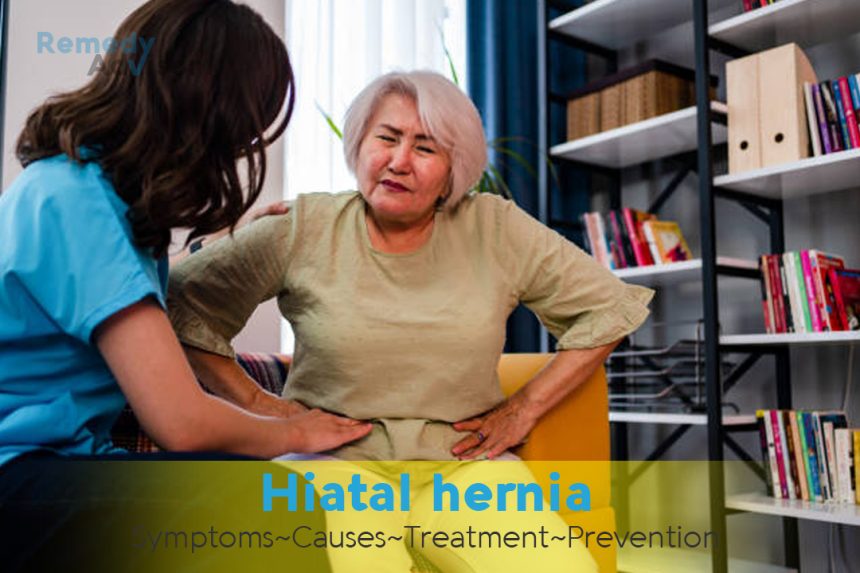What is it
A hiatal hernia develops when a portion of the stomach slides upward into the chest cavity through the esophageal hiatus (opening) of the diaphragm, the tough broad muscle that separates the chest from the abdomen. If this opening becomes increasingly weakened, powerful stomach acid flows backward from the stomach into the esophagus, irritating it and producing symptoms of heartburn. In severe cases (which are rare) the stomach may protrude upward into the lower chest.
Hiatal hernias may develop in people of all ages and both sexes, but the condition is most I common in those over 50. Many people, in fact, have a small hiatal hernia but aren’t aware of it until, complaining of chronic heartburn, they visit a doctor Fewer than 20 percent of the individuals with hiatal hernias ever experience any symptoms. (Usually, the hernia shows up only incidentally on an x-ray.) Most hiatal hernias don’t need treatment, though surgery may be necessary when the hernia is in danger of becoming strangulated (constricted in such a way that blood flow is cut off) a complication that is quite rare. Severe esophagitis (inflammation of the esophagus) may also necessitate treatment.
Symptoms
- Heartburn one to four hours after eating.
- Belching.
- Difficulty swallowing after eating.
What causes it
The most frequent cause of a hiatal hernia is muscle weakness due to normal aging, accompanied by increased pressure in the abdominal cavity produced by coughing, straining on the toilet, or any sudden overexertion. Pregnancy, obesity, and excess fluid in the abdomen can also contribute to a hernia.
What if you do nothing
Small hiatal hernias are common and usually harmless. If you have been told by your physician that you have a hiatal hernia, you should take precautions to avoid episodes of heartburn (see below). Otherwise, the hernia and associated heartburn can lead to inflammation, scarring, or narrowing of the esophagus.
Home remedies
If hiatal hernia symptoms become troublesome, practice the following self-help measures.
Keep meals small
Eat meals four to five times daily. Also, eat slowly and avoid lying down for two or three hours after eating practices that help prevent heartburn.
Watch what you eat and drink
Try to avoid high-fat foods, since they tend to slow gastric emptying. Likewise, alcohol can induce heartburn, so you should avoid it as well, along with citrus juices and caffeine, which can trigger or worsen symptoms.
Don’t smoke
Smoking helps increase the production of stomach acids, and the coughing caused by smoking can aggravate the hernia.
Don’t wear constricting garments
Tight trousers, pantyhose, girdles, or belts put undue pressure on the hernia.
Avoid straining during bowel movements
The key to this is to avoid constipation.
If heartburn does strike, take antacids
The discomfort of occasional heartburn once or twice a month can be relieved by taking an over-the-counter antacid, which should bring relief quickly.
Prevention
There is no known way to prevent a hiatal hernia.







